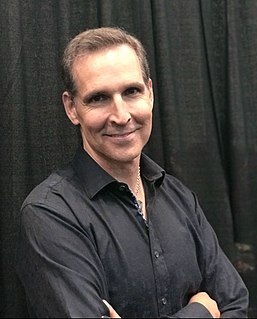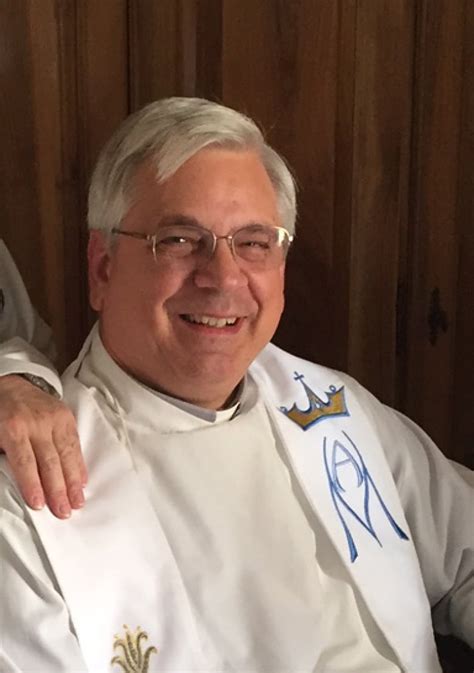A Quote by William Faulkner
Related Quotes
How she might have felt had there been no Captain Wentworth in the case, was not worth enquiry; for there was a Captain Wentworth: and be the conclusion of the present suspense good or bad, her affection would be his forever. Their union, she believed, could not divide her more from other men, than their final separation.
She died that night. Her last breath took her soul, I saw it in my dream. I saw her soul leave her body as she exhaled, and then she had no more needs, no more reason; she was released from her body, and being released, she continued her journey elsewhere, high in the firmament where soul material gathers and plays out all the dreams and joys of which we temporal beings can barely conceive, all the things that are beyond our comprehension, but even so, are not beyond our attainment if we choose to attain them, and believe that we truly can.
I've been afraid of being Cansrel,' she said aloud to her reflection. 'But I'm not Cansrel.' At her elbow, Musa said blandly, 'Any one of us could have told you that, Lady.' Fire looked at the captain of her guard and laughed, because she wasn't Cansrel- she wasn't anyone but herself. She had no one's path to follow; her path was her own to choose.
She was beautiful, but not like those girls in the magazines. She was beautiful, for the way she thought. She was beautiful, for the sparkle in her eyes when she talked about something she loved. She was beautiful, for her ability to make other people smile, even if she was sad. No, she wasn't beautiful for something as temporary as her looks. She was beautiful, deep down to her soul. She is beautiful.
She was incomprehensible, for, in her, soul and spirit were one - the beauty of her body was the essence of her soul. She was that unity sought for by philosophers through many centuries. In this outdoor waiting room of winds and stars she had been sitting for a hundred years, at peace in the contemplation of herself.
During a heavy storm at sea a nervous woman passenger on a large liner went to the captain, seeking reassurance. "Captain," she asked tremulously, "are we in great danger?" "Don't worry, madam," he answered, "after all, we in the hands of God." "Oh," she gasped, terror written on her face, "is it as bad as that?"
In her heart she is a mourner for those who have not survived. In her soul she is a warrior for those who are now as she was then. In her life she is both celebrant and proof of women's capacity and will to survive, to become, to act, to change self and society. And each year she is stronger and there are more of her.
The idea is that Jodie Foster is with her child and she's going back to New York from Germany with her husband's body. She loses her child on a plane, and you think, 'How can that happen?' There's no record of her having brought a child onto the plane, and the captain is left wondering about whether she's telling the truth. You never really know if she's telling the truth or not.
Little Lotte thought of everything and nothing. Her hair was as golden as the sun's rays, and her soul as clear and blue as her eyes. She wheedled her mother, was kind to her doll, took great care of her frock and her red shoes and her fiddle, but loved most of all, when she went to sleep, to hear the Angel of Music.
Love is an immortal wound that cannot be closed up. A person loses something, a part of her soul, when she loves someone. And she goes about looking for that lost part of her soul, for she knows that otherwise she is incomplete and cannot be at rest. It is only when she is with the person she loves that she becomes complete again in herself; but the moment he leaves, she loses that part which he has taken with him and knows no rest till she has found him once more.
She knew that she belonged to this man, body and soul. Every trace of shame departed; it was burnt out by the fire that consumed her. She gave him a thousand opportunities; she fought to turn his words to serious things. He baffled her with his shallow smile and ready tongue, that twisted all topics to triviality. By six o'clock she was morally on her knees before him; she was imploring him to stay to dinner with her. He refused.
Once again your mind explodes with a searing pain. A floodgate of memories bursts wide. Yet it is her face that keeps haunting you. Always her face. Who is she? Then things begin to crystallize. You remember your funeral. Begging and pleading for someone to release you from the darkness. You're not dead. You can't be. Then you feel her presence. Warm, caring, soothing. But somewhere deep inside she feels empty now. She has no reason. No meaning. No soul. But your soul lives. While her's is dying.
To commit herself to becoming "an apostle of Joy" when humanly speaking she might have felt at the brink of despair, was heroic indeed. She could do so because her joy was rooted in the certitude of the ultimate goodness of God's loving plan for her. And though her faith in this truth did not touch her soul with consolation, she ventured to meet the challenges of life with a smile. Her one lever was her blind trust in God.





































